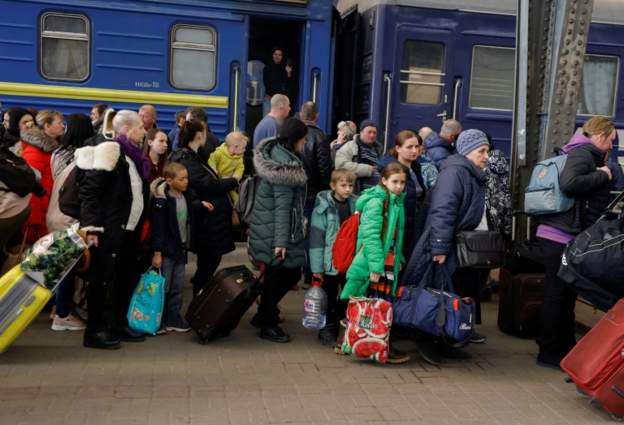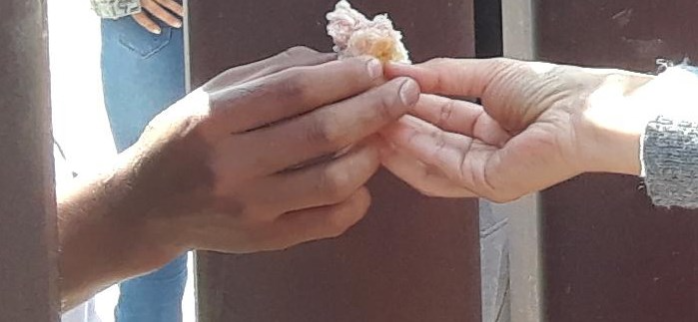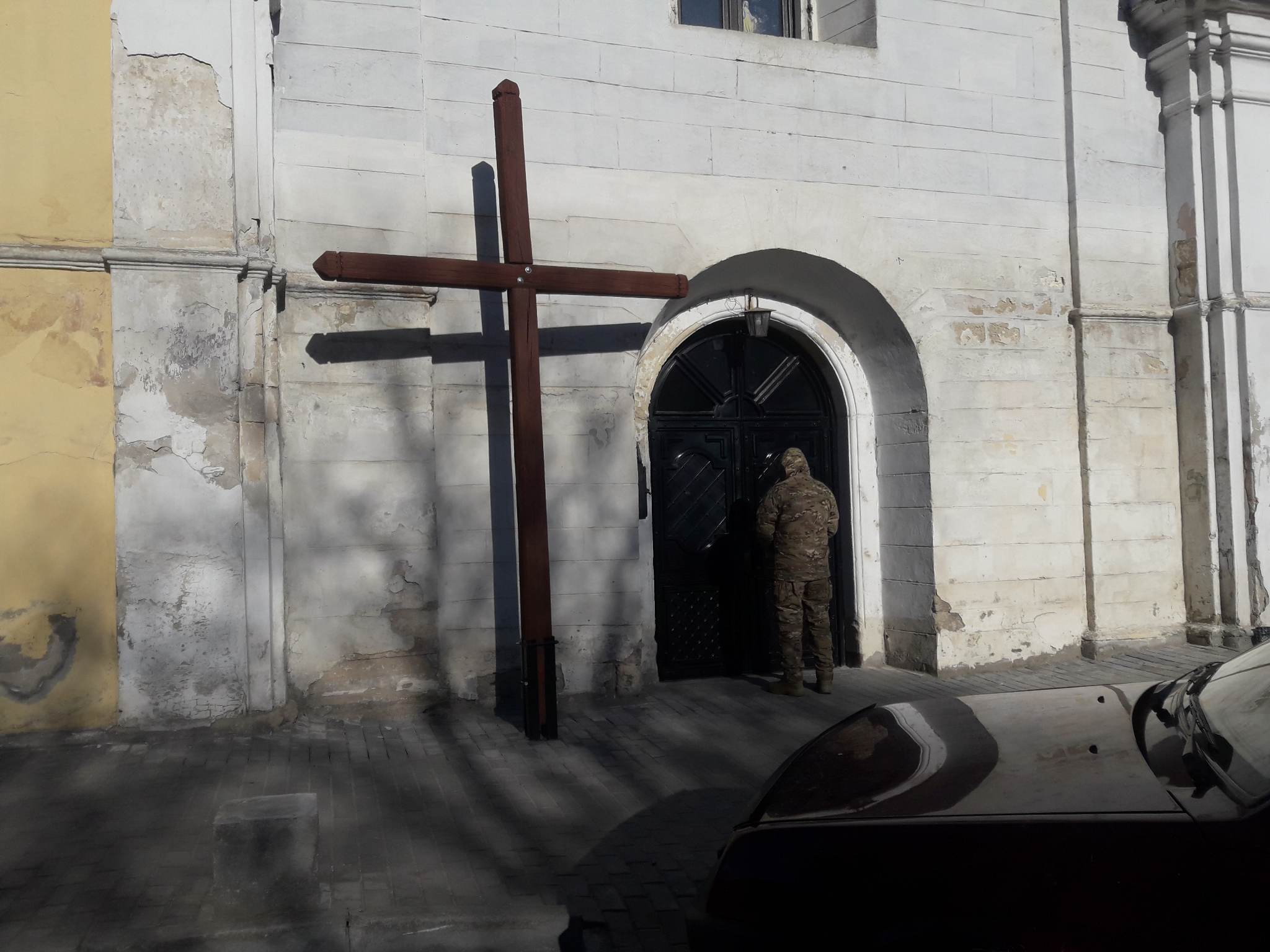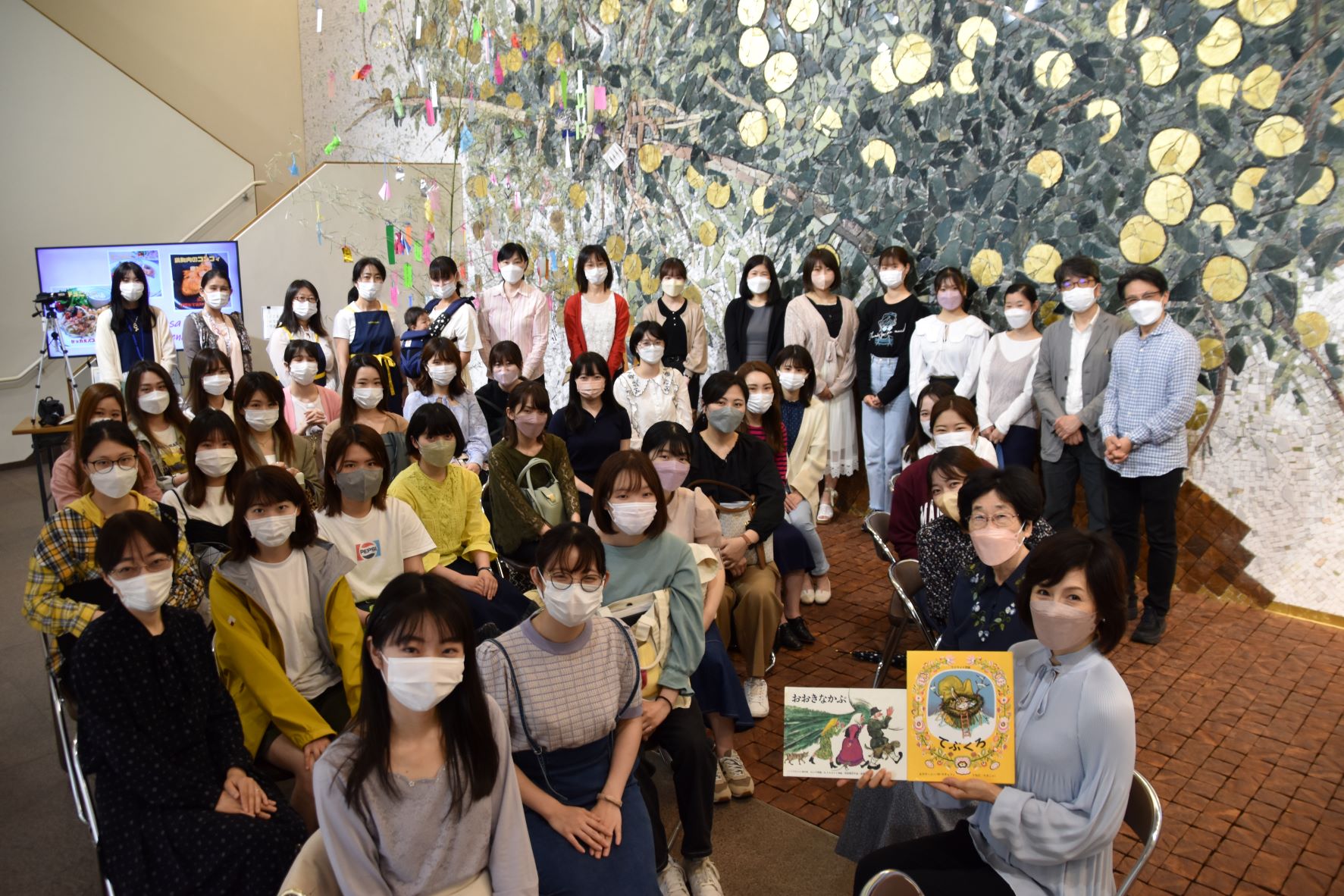I have never done social work. I am involved in spiritual accompaniment, education, journalism, organizing things, and leadership. But the horror of the war that broke out in a neighbouring country in February 2022 is something that has moved me on all levels.
By the second half of February 2022, a sense of forboding hung thick in the air. The news was coming in: things were not moving in the right direction. Hungarian communities – at the initiative of the PTVs, perhaps the most sensitive to world events – began to pray for peace on a regular basis. Then came the catastrophic news that Russia had invaded Ukraine.
Hungary immediately opened its borders to refugees. We knew that first the wealthy would leave Ukraine, those who had something to go to, and then the rest: the poor, the powerless, the desperate women with children but without luggage, helpless and separated from their soldier husbands.
My prayers were unceasing. The Society of the Sacred Heart in Hungary is very small and fragile. What is the Spirit calling us to do?
We held a crisis meeting with the national superior of Religious Congregations. There are only 800 nuns in the country, most of them old and fragile. What can refugees expect from us? Financial support, of course, accommodation, food, administration, education, prayer for groups of more than 30. But life must go on. “Normality” must be protected. Let the orders go on living as usual, and if there is extra energy, they will help.
And me, Lord, what should I do?
Eight days later, relatively close to the Ukrainian border, I made my way to the Franciscan Sisters. I had been asked to lead a training day months ago. At the end of a day that went well, the spiritual “call” came. I was less than two hours’ drive from the border. My car was empty. They fled across the border. Of course I’d be going that way!
I went to the border and for security reasons (the risk of human trafficking), after registration I got three passengers. A woman, Anastasia, her 20-year-old daughter, Kathrina, and her 8-year-old son, Igor, refugees from Dnipro, who had left eight days earlier with just two suitcases.
The mother – the same age as me – spoke excellent English. She talked the entire way. She was tense, tired, overwrought, a real “mother tiger”, and an extremely intelligent woman. The children were beautiful but tired and quiet. The grandparents they left behind would be looked after by Anastasia’s husband, who had not yet been taken to the front. They were heading to Pisa, Italy, where they were offered accommodation by colleagues, but would like to return home as soon as possible. Anastasia spoke of the barbarity of the Russian soldiers, of their fears, and then, looking for topics we have in common, of Christmas and Easter customs, of food. After a while, the topic of faith, of a merciful and healing God, came up. Having had to study Russian for 12 years under the communist regime, I noticed that among themselves the small family spoke Russian, not Ukrainian.
When I asked, they told me that yes, they were Russian. But their identity is Ukrainian, and they are not allowed to use their mother tongue at home. They are rich, the wife is an English interpreter, a purchasing agent in an iron factory, but she also studied psychology. The husband is a real estate developer. They have several apartments.
After a three-hour drive, we arrived at the airport in Budapest. The clock struck midnight and they flew to Italy at 5am. They wouldn’t accept dinner or even a bottle of water. “There are people more in need,” they said. I’ll never forget the grateful look on the face of Igor, the little boy who had to be lifted out of the car because he was too tired to walk.
In the days afterwards, I kept thinking about what had happened. Secretly, I was not expecting such passengers, rich, English-speaking, with somewhere to go. I had probably imagined helping people who were poorer and more desperate – but I would help whoever God had chosen to send!
I was reminded of the Frenchman Brother Roger (1915-2005), founder of the Taize community. When he was young, at the end of the Second World War, he first rescued Jewish refugees on the Franco-Swiss border, and then German Nazis at the end of the war. He did not ask anyone who they were or why they were fleeing, but simply helped. That’s what my experience calls me to do. To help, no matter who needs it. Political judgement in this highly media-manipulated world is not our job. Our job is to help. An impartial and contemplative look at the world is more relevant than ever. And let us pray for Ukraine.
Erika Tornya RSCJ, Hungary, CEU
Section |International News
Province |Central Europe



